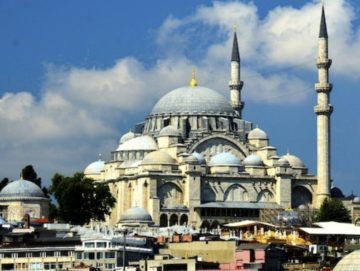Shadi Hamid in First Things:
 The Middle East was ahead of its time—and certainly ahead of the West—on at least one thing: existential debates over culture, identity, and religion. During the heady, sometimes frightening days of the Arab Spring, the region was struggling over some of the same questions Americans are contending with today. What does it mean to be a nation? What do citizens need to agree on in order to be or become a people? Must the “people” be united, or can they be divided?
The Middle East was ahead of its time—and certainly ahead of the West—on at least one thing: existential debates over culture, identity, and religion. During the heady, sometimes frightening days of the Arab Spring, the region was struggling over some of the same questions Americans are contending with today. What does it mean to be a nation? What do citizens need to agree on in order to be or become a people? Must the “people” be united, or can they be divided?
The fall of stagnant Arab autocracies opened up a divide over religion, illiberalism, and the relationship between Islam and the state. Liberalism—with its emphasis on nonnegotiable freedoms, individual autonomy, and minority rights—faced an uphill battle. Liberalism requires liberals, and there simply weren’t enough of them.
In the Middle East, Muslims went further, because they could. In the absence of a preexisting liberal consensus, alternatives to liberalism—in the form of Islamism—weren’t merely considered; they were voted into power.
More here.
